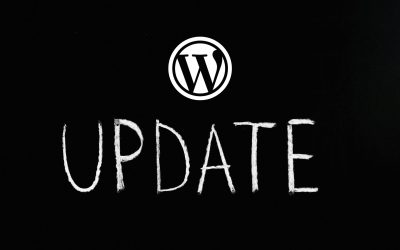Is DIY WordPress Maintenance Hurting Your Business?
WordPress makes it easy for small business owners to get online fast — but maintaining that site? That’s where most people get into trouble.
If you’ve ever delayed a plugin update because it “looked technical,” ignored those red WooCommerce warnings, or crossed your fingers instead of testing a backup, you’re not alone. But here’s the hard truth: DIY WordPress maintenance can quietly sabotage your business — in speed, security, and search visibility.
This post breaks down what’s at risk when small business owners take a hands-off (or clueless) approach to WordPress maintenance, and why switching to professional support can protect your revenue and reputation.
The Most Common DIY Maintenance Mistakes
WordPress is powerful, but that power comes with complexity. Here are the top issues we see when site owners try to handle it all themselves:
- Delayed Updates: Leaving WordPress core, themes, or plugins out-of-date exposes you to security holes and breaks functionality when things finally do update.
- No Backups: You think your host is backing up your site, but they’re not. Or they are — but restoring it is your problem, and it’s a nightmare when you need it most.
- Plugin Conflicts: Installing one too many features from the plugin repository can crash your site. Especially common with WooCommerce and page builders.
- Database Bloat: Unused post revisions, spam comments, and transient options can slow your site to a crawl.
- Overlooking Speed & SEO Issues: You don’t know your site is slow until customers bounce or Google drops your rankings.
And that’s just the technical side. Every hour you spend figuring out a broken contact form or failed update is time you could be spending actually running your business.
“It’s Just a Few Updates…” Until It’s Not
One of the biggest traps is underestimating how small issues compound. A plugin update that breaks your layout. A theme that stops working with the new WordPress version. A contact form that stopped sending emails weeks ago.
These issues rarely show up with fanfare — they just quietly cost you leads, reputation, and conversions. DIY WordPress maintenance is like driving a car but ignoring oil changes. Eventually, the engine fails. And in digital business, failure is expensive.
Real Example: One Missed Update, One Week Offline
A boutique florist in Victoria reached out after their website went offline — no warning, just a white screen. The issue? A WooCommerce plugin had auto-updated, but the theme hadn’t. The site broke. They had no working backup. Their previous developer was unreachable. They lost online sales for 7 days during peak wedding season.
We helped rebuild the site and moved them to our managed WordPress hosting plan. Now, updates, backups and optimisation are automatic — and monitored. No more guesswork, no more downtime.
What Proper WordPress Maintenance Includes
True WordPress maintenance isn’t just ticking boxes. It’s a structured, proactive process. A good managed service includes:
- Weekly plugin and theme updates (done safely, with rollback if needed)
- Automated daily backups, stored offsite and tested regularly
- Security monitoring and malware scanning
- Database optimisation to keep performance high
- Broken link checks and SEO scans
- LiteSpeed or caching configuration for fast load times
- Error logging and email deliverability monitoring
In short, things you shouldn’t have to think about — but that need to be done to keep your website fast, functional and secure.
Why Aussie Businesses Should Choose Local WordPress Hosting
Many Australian businesses rely on global hosts who offer “one-click WordPress installs” but leave the maintenance to you. But when something breaks, you’re stuck with overseas ticket systems, support that doesn’t understand Australian websites (.com.au quirks, ABN integrations, etc.), and timezone delays.
Australian WordPress hosting means:
- Servers located in Sydney or Melbourne (for better speed)
- 100% Australian support staff who understand local needs
- Built-in maintenance and optimisation as part of your plan
- No late-night ticket chases — just solutions
It’s hosting built for small business, not just techies.
The Business Case for Letting Go of DIY
As a business owner, your time is worth money. Every hour spent troubleshooting plugin conflicts or researching .htaccess errors is an hour not spent serving customers, closing deals, or planning growth.
Letting go of DIY maintenance:
- Reduces risk: no more crashes from untested updates
- Improves performance: faster sites convert better
- Protects your SEO: no sudden issues that tank rankings
- Saves time: stop being the IT department for your own business
- Delivers peace of mind: someone’s watching your site, so you don’t have to
What to Look for in a WordPress Maintenance Provider
Not all “managed WordPress” services are created equal. Here’s what to look for when considering help:
- Australian hosting infrastructure — not just a reseller of US-based services
- Transparent reporting — monthly summaries of what was done, what broke, and what was fixed
- Speed and security tools built-in — like LiteSpeed cache, SSL, and malware scans
- Support you can talk to — not just tickets and chatbots
That’s exactly what we offer through our WordPress Web Hosting Australia services — no jargon, no nonsense, just real support from people who know your site and your goals.
Final Thought: Your Website Is Not a Set-and-Forget Asset
Many small businesses treat their website like a flyer — something they “get done” and then forget. But websites aren’t passive. They’re live platforms that need regular care, updates and protection. Just like your shopfront needs cleaning, stock rotation and security, your website does too.
Still think you’re saving money doing it yourself? One hack, crash or failed update can cost more in a week than a full year of professional maintenance.
Talk to us about our fully managed WordPress solutions — built for Australian businesses, maintained by local experts, and designed to keep your website doing its job: growing your business.






